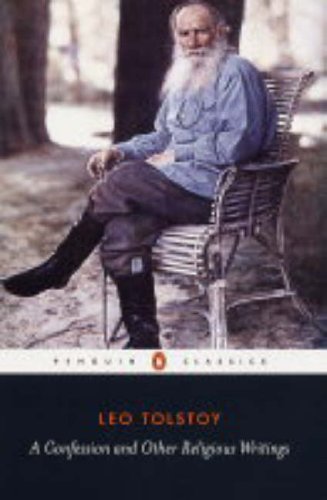This is a brief blog to introduce the religious beliefs of Count Leo Tolstoy. This Russian aristocrat of the late 19th century (he died in 1910) was the writer of the ‘War and Peace‘ and ‘Anna Karenina‘ amongst others. Following something of the arc of Solomon recorded in Ecclesiastes, he obtained all that he could want, but still could not find satisfaction. Initially he adopted a nihilist attitude to life, barely resisting the temptation to follow its logic and commit suicide because life is meaningless, instead chose to investigate religion. In the course of this he committed himself to drinking deep of Russian Orthodox, but in the end found that unsatisfactory. Travelling to Western Europe, he also engaged with some forms of Protestantism. Neither of these met his deepest need. He also had contact with proponents of Islam, Buddhism, Judaism and Hinduism. In the end he came to the conclusion that all religions actually endorse the same basic belief – but have come, over the years, to hide this in the complexities of their formulations. He also rejects any possibility of miracles, rejecting any definitive statement about what happens after life, though hinting there is some continuity.
He claims that the truth of all religions is:
- There is a God who is the origin of everything
- there is an element of the divine origin in every person
- this is increased or decreased by how they choose to live
- to increase this, he must suppress his passions and increase the love within himself
- the practical means of achieving this consists of doing to others as you would have them do to you. p. 119-120
and
‘The peculiarity of the Christian teaching lies only in the fact that, being the last(sic), it uses greater precision and clarity to express the essence of the law of love and the guidance for conduct that follows from it.’ p. 173
I find this conclusion striking and depressing for many reasons. The most obvious is that he is totally blind to the role of God’s grace in Christianity, instead seeing only the duty to shape oneself for the better. This emphasis is one that is routinely criticised by evangelists, though I suspect that for many religion has become detached from any substantial expectation of personal discipline, with an emphasis on the comforts of religion, elegantly criticised in Packer’s ‘Hot tub religion‘. Yet it is the claim that all religions are actually the same that has been the most pernicious over the past century, generating much confusion as well as delegitimising Christian evangelism in the eyes of many. This is the de facto belief of much of the establishment, demonstrated by the equal treatment displayed to most religions by such institutions as the BBC and schools. A specific blooming of his attitudes is seen in Gandi’s beliefs, both in his anti-violence and his marginalisation of the specific beliefs of Hinduism, most obviously the caste system. Tolstoy was in correspondence with Gandi.
The value of knowing the roots, of knowing where ideas emerged from, is that we can challenge those who hold them to justify them more precisely. Although Tolstoy’s anti-miracle stance is inherited from the sceptics of the 18th century enlightenment, his claim that all religions are the same is largely new, although Sikhism’s attempt to reconcile Islam and Hinduism, and the Bahai’s of Christianity and Islam derive from the same idea. Yet the reality is that ideas within them DO conflict unreconcilably; ignoring them requires an appeal to another source of authority, and in doing so implies a rejection of the religion(s) that you are reconciling. At least Sikhism and the Bahais are honest enough organise new forms; the adoption of this approach by those continuing to assert their faithfulness to the original religion is surely more dubious.
